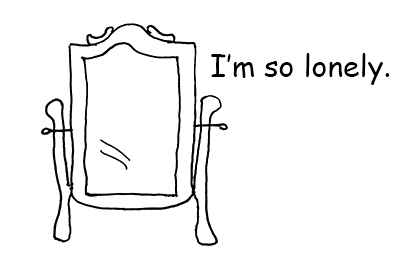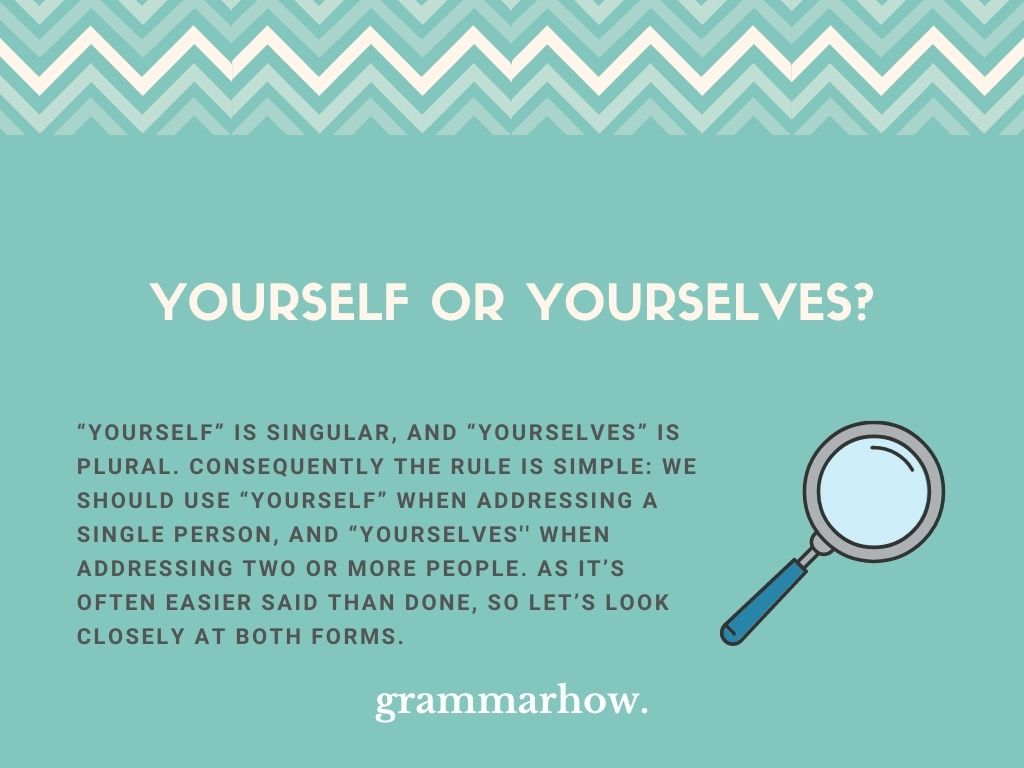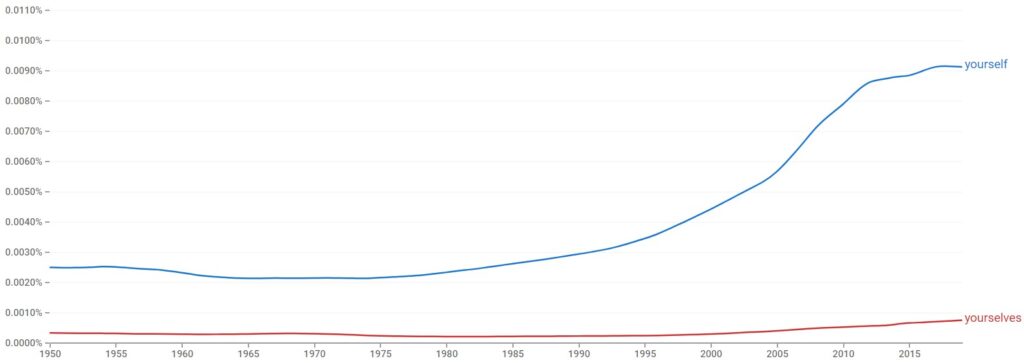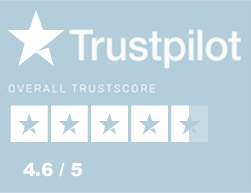To express our thoughts in the singular or plural form is often a challenge. We want to make sure we make sense, and we want to do it correctly.
“Yourself” and “Yourselves” can be tricky to use. Let’s take a closer look at them, to know when to use each.
“Yourself” is singular, and “Yourselves” is plural. Consequently the rule is simple: we should use “Yourself” when addressing a single person, and “Yourselves” when addressing two or more people. As it’s often easier said than done, so let’s look closely at both forms.
Take a look at the examples below:
- You should go watch a movie and enjoy yourself!
- You should go watch a movie and enjoy yourselves!
- Why do you want to be by yourself today?
- You’re allowed to go to the park by yourselves.
Looking at the sentences, you get a clear picture of who’s alone and who’s accompanied. And you get that idea just by the use of “Yourself” and “Yourselves”.
That’s the power those words have. If you interchange “Yourself” for “Yourselves” (or vice versa) in any of those sentences, you’ll get a different meaning every time – always pointing towards the fact that someone is alone or accompanied, whatever is the case.
When to Use “Yourself”
You should use “Yourself” when conversing with a single individual. You’re not commenting on a third person, and you’re simply saying (whatever it is you have to say) directly to this person, with no intermediaries.
“Yourself”, indicating one single person, appears in sentences as you can see by the examples below:
- Just please do it yourself, and don’t delegate the task.
- You should hear yourself talking.
- Take some time for yourself and just relax.
- Don’t try to do it by yourself, call me for help.
- Keep your smile to yourself.
Whatever “Yourself” is trying to convey, it refers to a single person, and never a group of people. “Yourself” is always addressed to only one person.
When to Use “Yourselves”
“Yourselves” should be used when addressing two or more people, and the message you’re sending is valid for all of them at once. “Yourselves” would never relate to a single person.
“Yourselves”, indicating more than person, appears in sentences as you can see by the examples below:
- Why can’t you just focus, and finish it yourselves?
- You shouldn’t be putting yourselves at risk like this.
- In class, you need to be doing the work yourselves, not copying off of each other.
- Did you enjoy yourselves during your vacation?
- Please defend yourselves, and always speak up.
The presence of “Yourselves” indicates that the message is addressed to a group. “Do it yourselves”, means everyone should do it. “Enjoy yourselves” means to have fun as a group.
In every sentence, “Yourselves” brings the idea of collective.
Which Is Used the Most?
When talking to each other, do people usually mention just one person, or a group of people? Is it more common to say “Yourself” or “Yourselves”? We’ll find out by looking at the graph from Google Ngram Viewer below.
The graph shows that “Yourself” is used with much more frequency than “Yourselves”.
Perhaps the reason is that there are many ways to refer to a group that doesn’t necessarily involve using the word “Yourselves”.
For example, instead of “do it yourselves”, a teacher may say something like “do it as a group” or “work in pairs” and basically convey the same message. However, the word “Yourself” as a reflexive pronoun is harder to replace.
Is Yourselves Plural for Yourself?
“Yourselves” is plural for “Yourself”. Although “Yourselves”, out of the context of a sentence, doesn’t define any particular number of people, it works as a plural for “Yourself”. If you want to decide to use “Yourself” or “Yourselves” based on the concept of singular and plural, you can do it.
Take a look at the example below:
- Look after yourself, will you?
- Look after yourselves, will you?
A small change in the sentences, which is changing “Yourself” (singular) for “Yourselves” (plural) indicates the presence of at least a second person.
“Look after yourselves” could indicate two people, as much as it could indicate ten. We’d need more information to understand how many people are included in the advice. But the fact that “Yourselves” addresses a plural audience, is undeniable.
Martin holds a Master’s degree in Finance and International Business. He has six years of experience in professional communication with clients, executives, and colleagues. Furthermore, he has teaching experience from Aarhus University. Martin has been featured as an expert in communication and teaching on Forbes and Shopify. Read more about Martin here.
- Top Definitions
- Quiz
- Examples
- British
This shows grade level based on the word’s complexity.
[ yoor-self, yawr-, yohr-, yer- ]
/ yʊərˈsɛlf, yɔr-, yoʊr-, yər- /
This shows grade level based on the word’s complexity.
pronoun, plural your·selves [yoor-selvz, yawr-, yohr-, yer-]. /yʊərˈsɛlvz, yɔr-, yoʊr-, yər-/.
(an emphatic appositive of you or ye1): a letter you yourself wrote.
a reflexive form of you (used as the direct or indirect object of a verb or the object of a preposition): Don’t blame yourself. Did you ever ask yourself “why”? You can think for yourself.
Informal. (used in place of you, especially in compound subjects, objects, and complements): Ted and yourself have been elected. We saw your sister and yourself at the game. People like yourselves always feel like that.
(used in absolute constructions): Yourself having so little money, how could they expect you to help?
your normal or customary self: You’ll soon be yourself again.
(used in place of you after as, than, or but): scholars as famous as yourselves; a girl no older than yourself.
oneself: The surest way is to do it yourself.
QUIZ
CAN YOU ANSWER THESE COMMON GRAMMAR DEBATES?
There are grammar debates that never die; and the ones highlighted in the questions in this quiz are sure to rile everyone up once again. Do you know how to answer the questions that cause some of the greatest grammar debates?
Which sentence is correct?
Origin of yourself
Middle English word dating back to 1275–1325; see origin at your, self
usage note for yourself
Words nearby yourself
you’re telling me, you’re welcome, your guess is as good as mine, yourn, yours, yourself, yours truly, yous, you said it, you scratch my back and I’ll scratch yours, youse
Dictionary.com Unabridged
Based on the Random House Unabridged Dictionary, © Random House, Inc. 2023
How to use yourself in a sentence
-
Between 25 and 30, you’re trying to decide how much longer before you start growing a beard and calling yourself ‘Daddy.
-
With Vice, that was an example of you keeping yourself interested too, right?
-
Being there teaches you to think quickly, edit yourself, and not get too precious about your own work.
-
To judge her acting abilities for yourself, check out her videos on YouTube for “Sex Shooter.”
-
Marrying yourself merely underscores selfishness and self-interest, rather than enabling you to live singly in the best way.
-
Terror drives you on; fate coerces you; you can’t help yourself, and my delight is to make the plunge terrible.
-
Your sacrifice shall be the agony of agonies, the death of deaths, and yet you’ll find yourself unable to resist.
-
Entrez donc, ’tis the work of one of your compatriots; and here, though a heretic, you may consider yourself on English ground.
-
Tell Lady Maude the candid truth, and take shame and blame to yourself, as you deserve.
-
Still, monsieur, I am willing to proceed upon the lines which would appear to be more agreeable to yourself.
British Dictionary definitions for yourself
pronoun plural -selves
- the reflexive form of you
- (intensifier)you yourself control your destiny
(preceded by a copula) your normal or usual selfyou’re not yourself these days
Collins English Dictionary — Complete & Unabridged 2012 Digital Edition
© William Collins Sons & Co. Ltd. 1979, 1986 © HarperCollins
Publishers 1998, 2000, 2003, 2005, 2006, 2007, 2009, 2012
Here’s an error I started noticing around the ’80s, and it seems to stem from people’s difficulty with saying “I.”
Now, I first noticed the “I” problem back when I was a little kid and reading Judy Blume books. (If you’re too young to remember Judy Blume, think J.K. Rowling, except storylines about bras and wet dreams instead of spells and wizards.)
Blume, in a child’s first-person narrative, starts sentences with objects instead of subjects, such as, “Me and Donna went to the movies.” Children’s authors do this to try to sound like kids and relate to them by perpetuating bad grammatical habits.
People seem to think it’s snooty to say, “Donna and I,” but when they grow up, they also become aware that “Me and Donna” is wrong. So, faced with the choice of “I” (snooty) and “me” (wrong), some opt for the worst choice of all: “myself.”
So, we now have people saying “Myself and Donna” and its many popular, quite horrible variations:
• This was done by myself and several members of my team.
• I want to thank your workers and yourself for our success.
• They arrested several people, including myself!
Ugh.
A Reflection Requires Both an Object and a Mirror
The -self pronouns are what we call reflexive. They refer back to a noun or pronoun that has already been put in place. They cannot function alone anymore than a mirror facing nothing can show a reflection.
The purpose of reflexive pronouns is to allow interaction between the thing and its reflection. For example:
• I told myself to stop screaming.
• He thinks too little of himself.
• The queen herself gave the order.
• The twisted whip hit itself.
• Go check it yourself.*
*Hey, you might be thinking, there’s no “you” in that sentence. Remember that commands always have the implied subject of “you.” You can even write it that way: “You go check it yourself.”)
Why So Popular?

For one thing, we’re probably seeing the same sort of “longer words sound smart” thinking behind incorrectly saying “utilized” instead of “used.” Reflexive pronouns are said less frequently than subject and object pronouns (or at least, they used to be), so if you don’t know your grammar, “My team and myself would like to thank the academy” might sound fancier.
Other people I’ve been listening to incorrectly treat reflexive pronouns as some sort of third-option copout when they can’t decide whether the word is an object or a subject. Don’t know whether it should be “he” or “him”? Just use “himself!”
Double ugh.
This misuse of reflexive pronouns has gotten so bad, in fact, that MS Word’s spell-check tends to call all use of reflexive pronouns incorrect. (Go check it yourself.)
How to Avoid This Mistake
Fortunately, avoiding the misuse of reflexive pronouns is easy. Just never use one unless you already have a noun or pronoun in that sentence referring to the same thing. It doesn’t matter if the thing has been discussed in the paper or paragraph. It needs to appear in the same sentence. The following is wrong:
• I just love seeing all these new faces. I’ve done a lot of recruiting work. As for myself, I know we’re going to have a great year.
The following is correct:
• I just love seeing all these new faces. I’ve done a lot of recruiting work. As for me, I know we’re going to have a great year.
The following is also correct, if somewhat irritating:
• I myself just love seeing all these new faces. I’ve done a lot of recruiting work myself. As for me, I know we ourselves are going to have a great year.
Julia H(erself).
Continue Learning about English Language Arts
When do you use you yourself and you in a sentence?
The word «you» should be used when talking directly to a person.
The word «yourself» should be used when telling someone to do
something. For example, «go fix it yourself».
How do you use the word griefstricken in a sentence?
Answer:
How do you use the word griefstricken in a sentence?
Use the word organism in a sentence?
Use the word organism in a sentence?
How can you use the word ebullient in a sentence?
use it by saying-
how can you use the word ebullient in a sentence?
How do you use the word extricate in a sentence?
He really wished he could extricate himself from all the work
that his boss piled on. That is a great sentence to use since it
means to free yourself from a difficulty.




